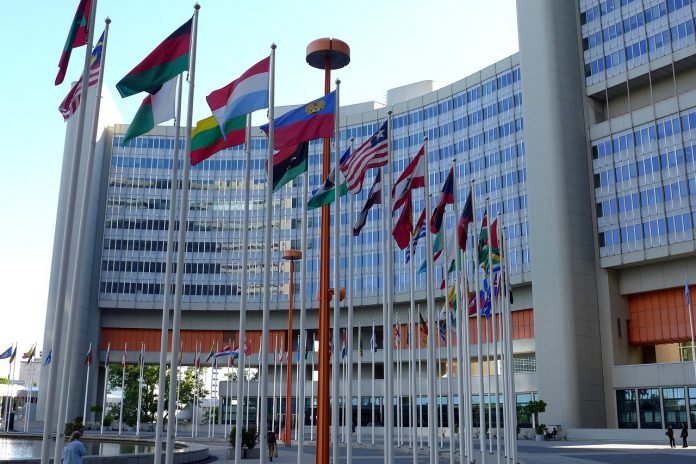Armistice Day was created to recognize the signing of the Treaty of Versailles that ended the hostilities of World War I or “the Great War.” On the 11th hour of the 11th day of the 11th month, all guns fell silent after four years of continuous warfare between the Germans and Allied troops.
Armistice Day was changed to Veterans Day in 1954, at the request of the various veteran’s organizations, to honor and remember all veterans of America’s wars.
The German defeat in 1918 was complete, in a strictly military sense. The German armies were badly beaten and their commanding officers knew it. They had lost 55 men for every hour, 1,330 for every day of the 52 months of the war. A total of 2 million German soldiers were dead for the “war to end all wars.”
The German allies had been knocked out — one by one. The Hindenburg line was cracked. Their submarine campaign had failed while the manufacturing and supply line at home was grinding to a halt. Morale on the homefront and in the trenches was crumbling. Germany needed to sue for peace and hope for the best.
Victory minus vengeance. While the war was raging in Europe, President Woodrow Wilson, the most highly educated man ever to be elected president, had begun to articulate the hopes for a liberal peace. He believed the victors could not indulge themselves in the luxury of vengeance.
In early 1917, three months before America entered the conflict, Wilson called for a “peace without victory.” But the ex-president of Princeton University sought more than a just settlement; he wanted to create a new, rational, international world.
On Jan. 8, 1918, Wilson, in a joint session of Congress, outlined his Fourteen Points. The first applied to all nations: open diplomacy, freedom of the seas, removal of barriers to free trade, arms reduction and impartial adjustment of colonial claims.
The next revolved around the principle of self-determination, especially those in Eastern Europe. The capstone of Wilson’s Fourteen Points was the creation of an international League of Nations.
On Nov. 11, 1918, representatives of Germany, United States, France and Great Britain, meeting in a railroad car, in the Compiegne Forest, signed an armistice based on Wilson’s program. The Great War was over.
The Peace Conference convened in January 1919, in Paris, amid an atmosphere of crisis. The war had left Europe in disorder politically, socially and economically. Half-a-dozen small ethnic wars still raged, and as the Bolsheviks fastened their hold on Russia, communist hysteria swept through Eastern Europe.
Big Four
Thirty-two nations sent delegates, but actual decision making devolved on the Big Four: Great Britain’s Lloyd George, France’s Georges Clemenceau, Italy’s Vittorio Orlando and the United States’ Woodrow Wilson.
Clemenceau wanted Germany dismantled or permanently disabled as to be incapable of threatening France again. George desired the gains made in the Middle East by the British military be guaranteed and the empire protected.
Italy and Japan, neither of which had contributed much to defeating Germany, gobbled-up German territory around the world. And then there was the idealist Wilson who wanted only to make the world safe for democracy.
The Big Four approved the demilitarization of Germany, the Allied occupation of the Rhineland, the return of Alsace-Lorraine to France and an Anglo-French-American mutual defense pact.
The map of Eastern Europe was redrawn, and a series of new independent nations sprang to life: Poland, Czechoslovakia, Yugoslavia, Austria, Hungary, Estonia, Latvia, Lithuania and Finland. Large numbers of Germans suddenly found themselves ensconced within the borders of these new countries.
Harsh punishment
The conference forced Germany not only to take full responsibility for causing the war, but also to accept a “blank check” for reparations, including damages to civilian properties and future war pensions. The Germans later learned that they owed $33 billion.
The Treaty of Versailles hardly lived up to Wilson’s idea of self-determination. Nor was it a “peace without victory.” But Wilson did win acceptance for the League of Nations. The league, he hoped, would later correct any imperfections in the treaty.
The complications of the treaty were endless, and the Fourteen Points the Germans thought they surrendered under were forgotten. Germany disliked the treaty but was unable to continue the war; however, warring factions would unite in the next 25 years, and Germany would start World War II in 1939. The seeds of future wars were strewn in this treaty.
Waning support
When Wilson returned to the U.S. from Paris, public opinion favored ratification of the treaty and membership in the League of Nations, but the Senate balked. Little by little, the enthusiasm that greeted Gen. John “Black Jack” Pershing and his dough boys when they came home to ticker-tape parades, started to ebb.
In March, 1918, Sen. Henry Cabot Lodge, chair of the Senate committee on foreign affairs, secured a resolution of 37 senators to kill the treaty and membership in the League of Nations. Wilson could count on the support of the Senate democrats, but could not meet the two-thirds majority necessary for ratification in the Republican controlled Senate.
The “bee in the bonnet” was the provision binding nations to preserve the territorial integrity and independence of all league members against aggression.
For two weeks, Lodge stalled for time by reading aloud to the Senate the text of the treaty, all 268 pages. Then he held committee hearings for six weeks, calling witnesses who opposed the treaty. The final straw, was when he compiled a list of 14 reservations, as if to ridicule Wilson’s Fourteen Points. The mood of the country now shifted against the treaty.
Wilson, overworked and frustrated, decided to go to the people on a whirlwind speaking tour. For three weeks, he traveled 8,000 miles by train, delivering 36 speeches. On Sept. 25, 1919, he collapsed at Pueblo, Colorado, a precursor to the stroke he suffered Oct. 2.
For a period of six weeks, the country was virtually without a president. Wilson never fully recovered.
When the treaty came to a vote, Wilson instructed the Democrats to vote against the treaty with the Lodge reservations. The Senate thus ended the debate March 20, 1920. The U.S. would not join the League of Nations.
When World War II drew to a close, the victorious nations took up the unfinished business of 1918. The mistakes of the Paris Peace Conference would not happen again.
Presidents Franklin D. Roosevelt and Harry S. Truman were conscious of the earlier errors and carefully avoided them. This time, America led the charge and joined the new international organization — the United Nations.
That’s your history!













